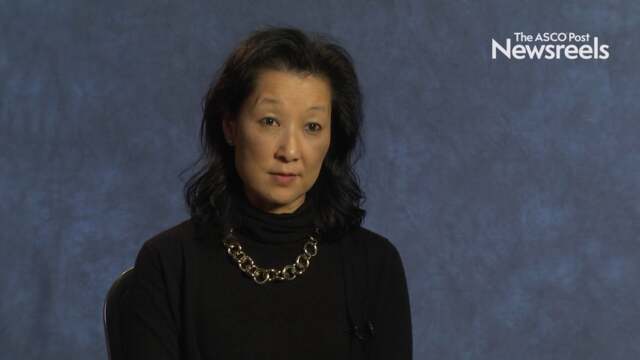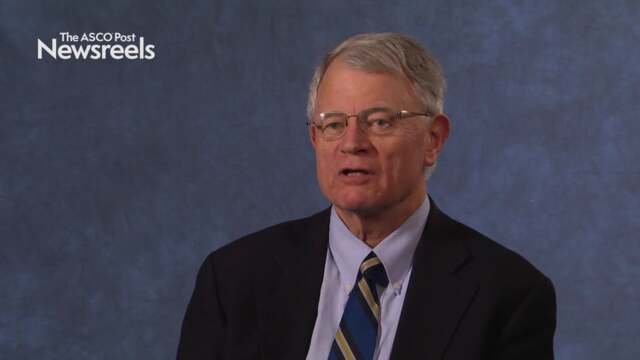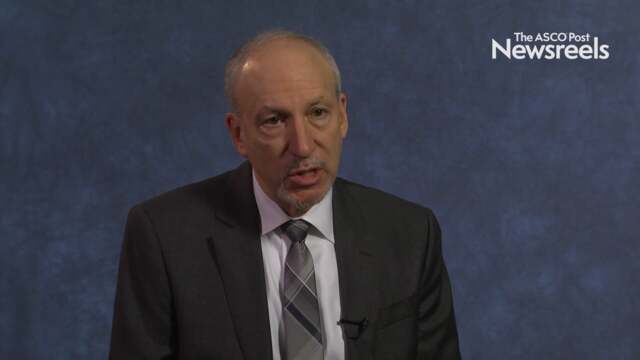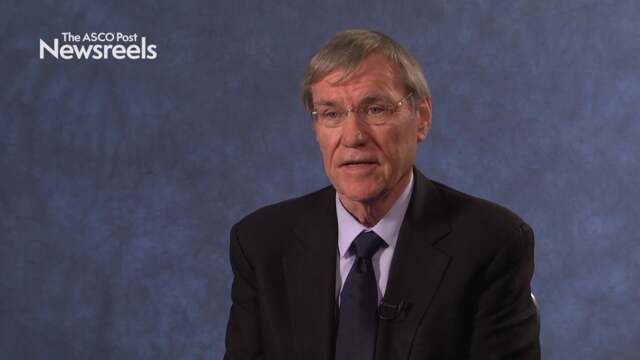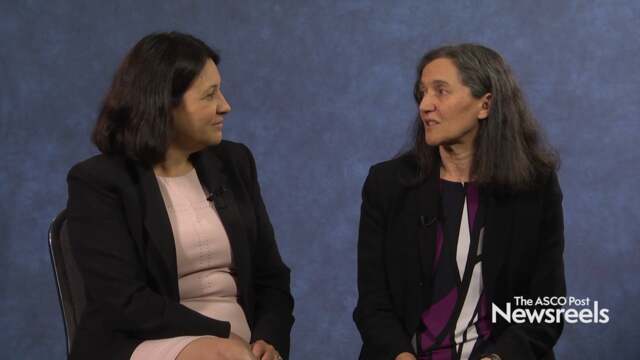Joseph A. Sparano, MD, on Stage II–III Breast Cancer and CTCs
2017 San Antonio Breast Cancer Symposium
Joseph A. Sparano, MD, of Montefiore Medical Center/Albert Einstein College of Medicine, discusses findings that suggest circulating tumor cells 5 years after diagnosis are prognostic for late recurrence in operable stage II–III breast cancer (Abstract GS6-03).
Eun-Sil Shelley Hwang, MD, of Duke University Medical Center, discusses study findings on primary endocrine therapy for estrogen receptor–positive ductal carcinoma in situ (Abstract GS5-05).
Louis Fehrenbacher, MD, of Kaiser Permanente, discusses study findings comparing adjuvant chemotherapy with doxorubicin and cyclophosphamide followed by weekly paclitaxel—or docetaxel and cyclophosphamide—with or without a year of trastuzumab in women with node-positive or high-risk node-negative disease (Abstract GS1-02).
Lee S. Schwartzberg, MD, of the West Cancer Center, discusses phase II study findings evaluating exemestane with or without enzalutamide in patients with hormone receptor–positive breast cancer (Abstract GS4-07).
Rowan T. Chlebowski, MD, PhD, of the City of Hope National Medical Center, discusses 11-year followup results that showed a significantly lower breast cancer incidence among women with a greater than 5% weight loss (Abstract GS5-07).
Vered Stearns, MD, of Johns Hopkins University, and Prudence A. Francis, MD, of the Peter MacCallum Cancer Centre, discuss two key topics in adjuvant treatment: endocrine therapy for premenopausal women with ER+ breast cancer and finding the optimal duration of treatment.
